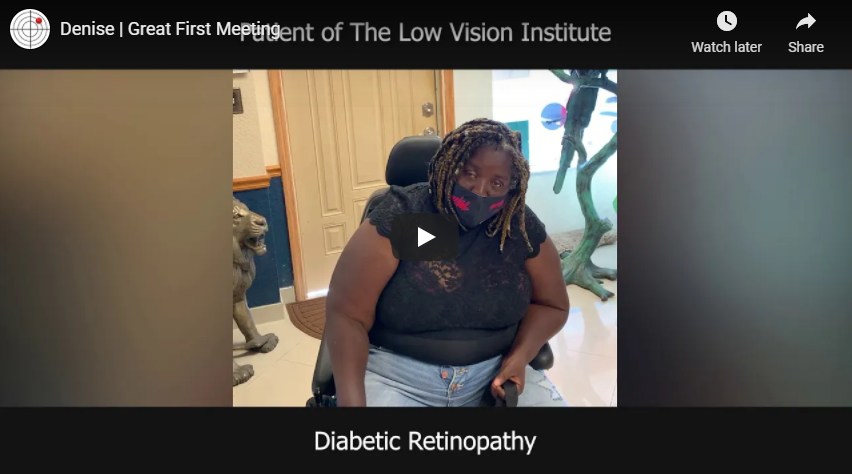FAQ
Q: Why does my doctor keep telling me there is nothing else that can be done for me, when clearly you can help me?
A: Ophthalmologists and Retinal Surgeons are critically responsible for stabilizing your medical condition. But, there often is nothing else they do to help you regain your vision. However, there is more that can be done. Our Low Vision services compliment your medical treatment and provide you with a means to enjoy seeing again.
Q: I have already had low vision therapy, how is your low vision program different?
A: Most low vision programs focus on the sight you’ve lost. They use techniques developed for the blind. (For example: You may have had the dials on your oven marked with bump dots so you can feel when the oven is set to say, 350 degrees. This technique helps you to cook without vision. You are merely shifting from using sight for using touch.)
But in our program, you are evaluated by a physician to determine your residual vision. Then, with custom devices and therapies, we train you to actually see again.
Q: I have wet macular degeneration, can you help me?
A: Of course, each case is unique, but in most cases, yes. Dry and wet macular degeneration both result in a loss of central vision. The wet form loss may progress much faster. The important thing is come in for an examination to determine the remaining healthy tissue, and take full visual advantage of it.
Q: I have low vision, but not macular degeneration, can I still be helped?
A: Yes, most patients with remaining sight can be helped. While Macular Degeneration is most common, conditions such as glaucoma, diabetic retinopathy, retinitis pigmentosa, albinism, and visual field loss from stroke or trauma can all benefit.
Q: Are these services covered by insurance?
A: Medicare and most state Medicaid programs provide for the Low Vision evaluation and for the associated occupational therapy services. Most private insurance plans and HMO’s do not cover low vision services. Low vision devices are not covered by any of these programs and remain the responsibility of the patients.
Q: What is the best low vision device for me?
A: Low vision devices come in thousands of varieties and designs. The best one for you will be based on the level of residual vision that you may have, and your personal visual goals.
Q: I can’t see things right in front of me, how come I can sometimes clearly see small objects out of the corner of my eye?
A: First of all, that’s a very encouraging question. It means that you have healthy, functioning, useful tissue in your eye. My first patient clearly noticed a tiny piece of lint on the carpet though he was legally blind. The light on a dark background provided excellent contrast, but more importantly, it hit a healthy part of his retina. He couldn’t find that piece of lint if he was looking straight at it. But it accidentally found his healthy tissue. We use the RenewView Program, which helps us locate the healthy part of your eye, and design devices and therapies to accurately direct your vision to it.



